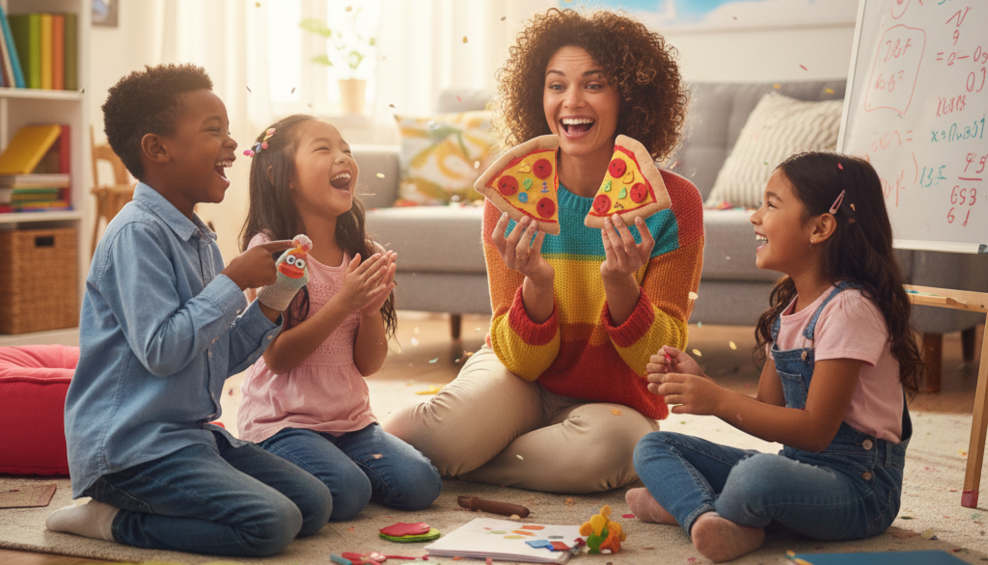A child’s learning environment can significantly influence their success – and laughter in learning is one of the most powerful tools to help. One often overlooked factor? Fun! A positive mood and plenty of laughter can do wonders for a child’s education. Research shows that children absorb information better when they are happy and engaged. Let’s explore how joy and laughter can make tutoring more effective – so what are the benefits of laughter in learning?
Boosting brain power
When children laugh, their brains release endorphins, which reduce stress and improve focus. A stress-free mind is far more receptive to new information, allowing children to grasp challenging concepts with ease. Studies have found that humour in education promotes better memory retention, as detailed in this research article by the Association for Psychological Science.
Encouraging engagement and confidence
Laughter also creates a sense of connection between the tutor and child. This trust encourages children to ask questions without fear of judgment. As a result, they become active participants in their learning journey. A tutor who uses fun, engaging methods can transform lessons into exciting adventures, making even tricky subjects enjoyable.
Improving mental and emotional wellbeing
Children who enjoy learning are less likely to feel overwhelmed by academic pressures. Laughter can ease feelings of anxiety, creating a calm and enjoyable atmosphere. This emotional stability not only benefits academic performance but also promotes overall mental health, helping children develop a positive outlook on education.
Strengthening social skills
Group tutoring or interactive activities that include laughter encourage teamwork and social interaction. When children laugh together, they form connections, learn to collaborate, and develop empathy. These skills are vital for building strong relationships both in and out of the classroom.
Building resilience and a growth mindset
Mistakes are part of learning, but laughter can turn frustration into motivation. By fostering a playful environment, tutors help children see setbacks as opportunities. This resilience boosts their academic progress and prepares them for future challenges.
A lesson wrapped in laughter
Imagine a maths lesson where every mistake turns into a giggle, and every correct answer earns a dramatic or silly “teacher dance.” Suddenly, fractions don’t feel so scary when they’re part of a pizza-slicing contest. Whether it’s inventing silly songs about times tables or using puppets to explain history, laughter doesn’t just teach the lesson—it becomes the lesson. And let’s face it, who wouldn’t want a tutor with a top-notch robot impression?
So is laughter really that important?
Yes! A joyful approach to education isn’t just fun—it’s essential. Whether through interactive games, storytelling, light-hearted discussions or a fun competition, creating a happy space for learning unlocks a child’s true potential. The benefits of laughter in learning are therefore huge!
Plus, we all know that having a good time while we learn means we retain much more. Win win!
You don’t stop laughing when you grow old, you grow old when you stop laughing. (George Bernard Shaw).











